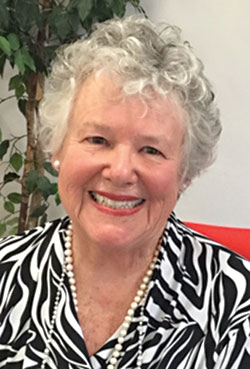
URBANNA — I was 12 years old, in the 1950s, when Father brought up the subject of equality at the dinner table.
“I’ve been thinking over what Jefferson meant when he said “all men are created equal” in 1776 when he wrote the Declaration of Independence.” This was typical conversation with Father.
An electrical engineer by education, he was also an artist, writer, author, fisherman and hunter. Table talk was never boring.
He went on to say that there is no equality in nature. I immediately thought of the mouse and the lion. So he was right on that point.
In 1953 our notion of equality was the concept of “one man-one vote.” This definition had been a long time in coming as over the centuries only white male adult property owners could vote. Today all citizens over 18 can vote (except some felons) and there is talk of expanding the right to vote to non-American citizens and children who are 16 years of age.
The other definition of equality in 1953 was everyone was equal before the law. Today we wonder whether there is true equality in the courts and question whether minorities are sentenced for crime more than others. We also wonder if some politicians are above the law, depending on political affiliation.
In my lifetime the definition of equality has greatly expanded. Affirmative action and hiring and promoting quotas along with special preference given according to race and gender and even sexual preferences have become standard. Some universities no longer consider the old standard SAT test scores to decide admission, high schools have dropped class rankings, National Honor Awards are not necessarily announced and class valedictorians not always honored at graduation as in the past.
But in the 1950s Father was thinking about what Jefferson had meant in his definition of equality writing in 1776 with his oft quoted phrase “all men are created equal.” What Father decided at that time indicates exactly how long and difficult the struggle has been for us to reach our definition of equality today.
Father believed that Jefferson meant that every human being was “born of woman” — that is, no one was born God, but born human. This is an important distinguishment between what earlier religions and cultures professed — that gods often intermingled with humans and produced “half god” offspring. Perhaps Jefferson simply meant as he wrote the Declaration in 1776 that no humans are to be considered God. That notion in itself is a giant step for mankind.
Even as definitions of equality have evolved over the centuries, the same frustration haunts most everyone when we finally realize we are not equal to others. In my case, in high school math and science classes when this good student in literature and history had to fight just for a C- grade.
And when I look in the mirror I see a woman who is not bad looking, but she is no beauty either. Or when I play tennis with my daughter and she beats me every time, or continue hitting the same wrong notes on the piano in “Nessun Dorma” in spite of playing piano all my life.
And I certainly am aware of inequality when I read the great writers. I’m always left with a dull ache when I see the obvious differences in ability.
Today we also discuss what to do about the fact that some people have had “privileged” childhoods and others have not. Privilege meaning any advantages gleaned by having been born in a stable, educated two-parent family without suffering from poverty or drugs. How then does society create what is referred to as “a level playing field?”
We are also concerned with reverse racial discrimination which limits opportunities on the basis of any race which many feel is just as wrong as any discrimination. Although there are some citizens that believe racial favoritism should be now enforced at the detriment of others to atone for past discrimination.
America is doing much to create a more level arena. But it’s a challenge because not only are there differences in social, economic and educational circumstances but also in levels of motivation and self-discipline — major factors in achieving goals.
Yet it is always a thrilling story when a disadvantaged child grows into a successful adult. America has always been filled with Horatio Alger stories. My own grandfather coming from England with no money or education was just one in millions of success stories of an America that promises open doors to all people.
What our society must always do as it works to create fairer systems, is make sure the brightest and hardest working citizens rise to the top. So that America can continue delivering its promise of freedom and opportunity for ages to come.
Still, mustn’t grumble, but even after all is said and done, I don’t quite see why I couldn’t have been born a raving beauty, math genius, ace tennis player, and the first female William Shakespeare!
© 2023



